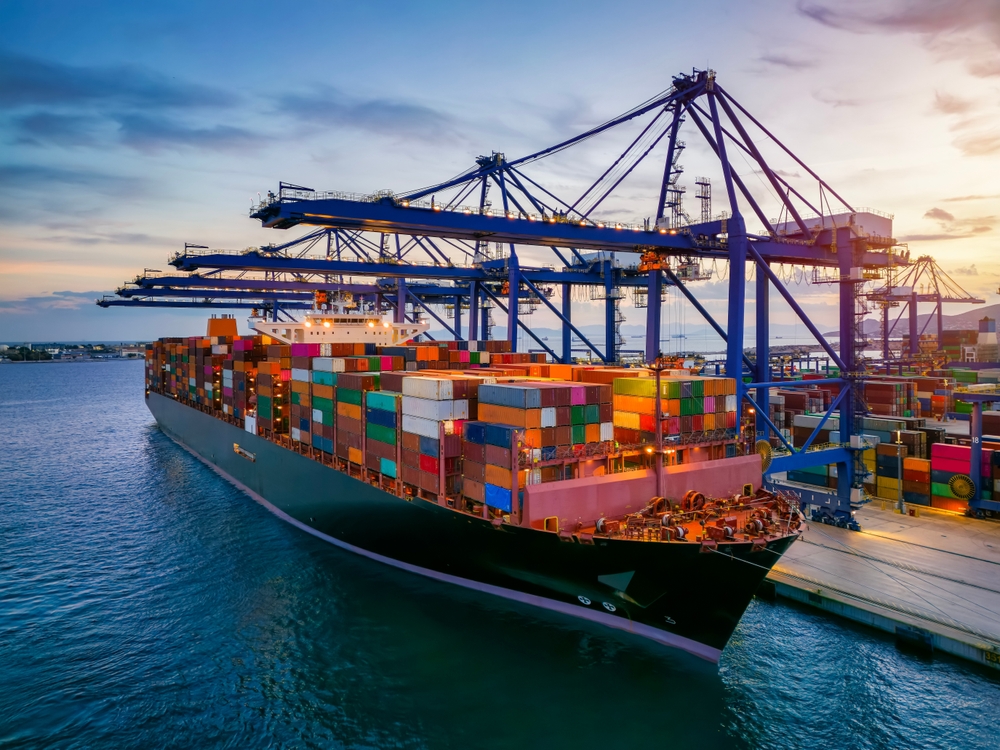In today's rapidly evolving global marketplace, businesses in Greater Lincolnshire and Rutland have the opportunity to expand internationally. To help local enterprises navigate the complexities of global trade, Business Lincolnshire, alongside other local and national organisations, offers a range of fully funded support services.
We spoke with Andrea Collins, the Specialist Global Trade Adviser at Business Lincolnshire, to learn more about the challenges and opportunities in international trade and how local businesses can benefit from tailored support programmes like the Local to Global Accelerator Programme.

Can you tell us a bit about your role at Business Lincolnshire?
I am a global trade specialist at Business Lincolnshire. My role involves providing hands-on support for businesses dealing with export and import. This tailored approach supports both strategic objectives, such as identifying target markets, and technical elements of global trade, customised to meet each business’s needs.
What are some of the biggest challenges businesses from the Greater Lincolnshire and Rutland region face when entering overseas markets?
One common challenge is identifying which markets need their products or services. Exporting services can be more complex than exporting goods, and Business Lincolnshire supports both. Another challenge is understanding the documentation required for goods to reach their destination markets. For example, some products have special requirements, particularly in the agriculture sector, which is significant in Lincolnshire.
Cost is another issue. Since leaving the EU, export costs have increased, and freight costs have risen significantly since COVID-19, exacerbated by conflicts in the Red Sea and Ukraine. Compliance is also critical, with businesses needing to ensure they meet the regulations of both their own and their customers' countries, including packaging and regulatory requirements.
How does Business Lincolnshire support local businesses in overcoming these challenges?
We offer comprehensive support for each aspect of global trade, with minimal eligibility criteria. Typically, SMEs in the region can access one-on-one support, regardless of their experience level or whether they deal in goods or services.
Our support includes assistance with documentation, strategic planning for export readiness, market research, and finding distribution networks and suppliers. We also help businesses navigate the complex geopolitical environment, identify alternative markets and sources, and ensure compliance with international regulations. We can apply on behalf of companies to HMRC to reduce or eliminate import duties and VAT for products that are subsequently exported.
Could you give us an overview of the Local to Global Accelerator Programme and its main objectives?
The Local to Global Accelerator Programme provides 1-2-1 support ranging from brief consultations to 30 hours of specialist advice. The programme is tailored to each client’s unique needs and challenges, ensuring bespoke solutions for their global trade issues.
What kind of businesses are best suited to benefit from the Local to Global Accelerator Programme?
Any business interested in importing or exporting, or those already engaged in these activities but facing challenges or seeking growth, can benefit from this programme. Even businesses that are unsure if exporting or importing is right for them often find value in exploring these opportunities.
Can you share any recent outcomes or successes from businesses that have completed the Local to Global Accelerator Programme?
One success story involves a textiles business facing high import duties. By obtaining HMRC authorisation for a customs warehouse, we helped them save money and remain competitive post-Brexit. This authorisation allows them to defer duty and VAT payments until goods are sold domestically, or avoid these costs entirely if the goods are exported.
How do you see the landscape of international trade and exporting evolving over the next few years?
We expect to see more nearshoring and onshoring as many businesses seek to build resilience by sourcing materials closer to home. Freight costs are unlikely to decrease soon, so businesses need strategies to manage these expenses. Sustainability regulations, especially from the EU, are becoming more stringent and will require companies to adapt their practices and those of their supply chains too, which we can help with.
What new opportunities or emerging markets should local businesses be aware of?
Emerging markets, especially those with growing populations and disposable income, offer significant opportunities. There is a global attraction to UK-based products and services, which can be leveraged in markets with less competition than the traditional EU focus. Sectors such as construction, education, professional services, and consumer goods have shown considerable success in these markets.
What final advice would you give to businesses in Greater Lincolnshire and Rutland that are considering international expansion?
Expanding internationally is a highly rewarding direction for business growth. If you are serious about maximising your potential, you will need to look beyond UK shores. Although it requires dedication, the support available ensures you are not alone in this journey.
Reach out to a specialist to explore the opportunities and start your international expansion here: https://www.businesslincolnshire.com/enquiry

